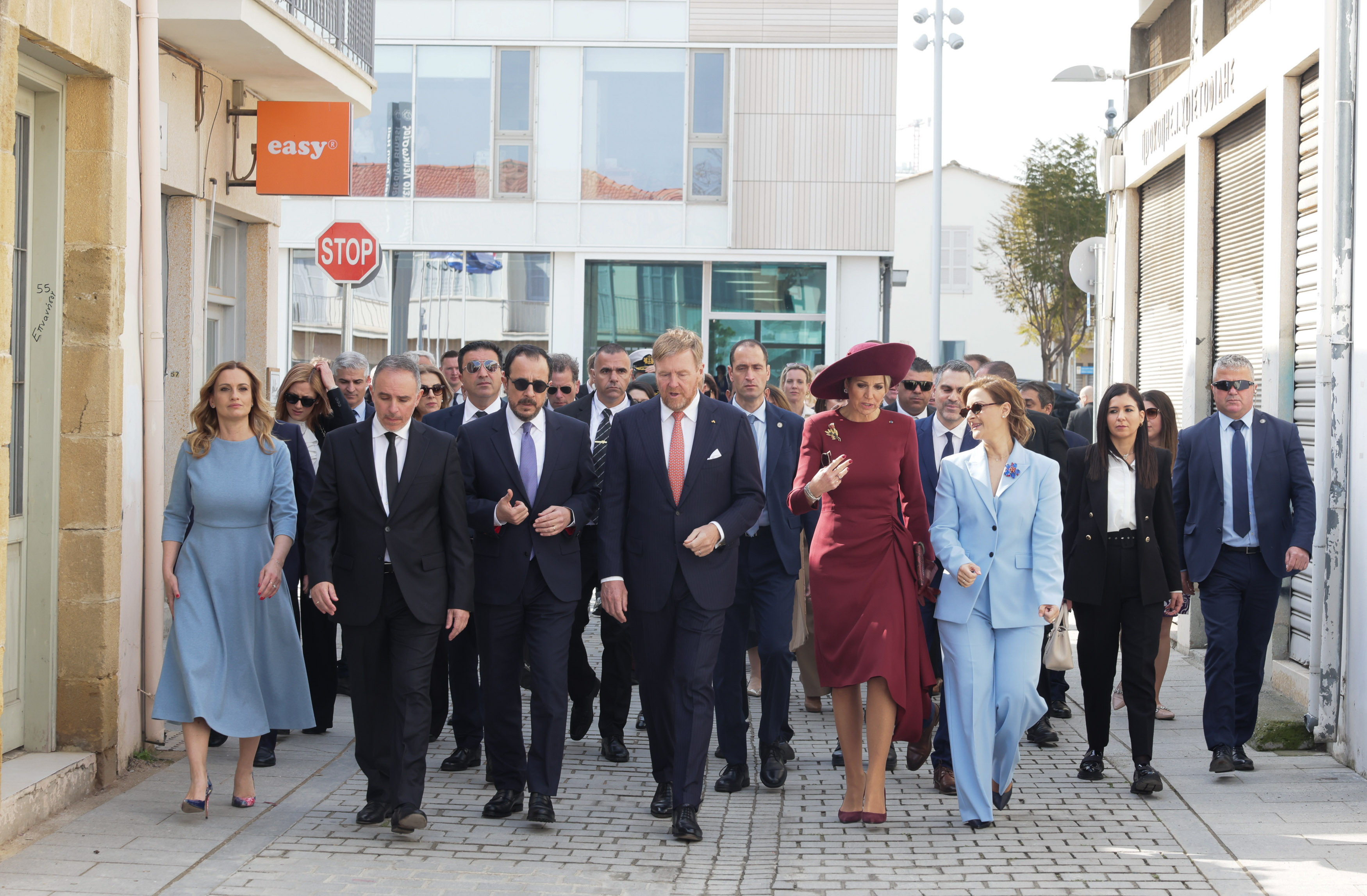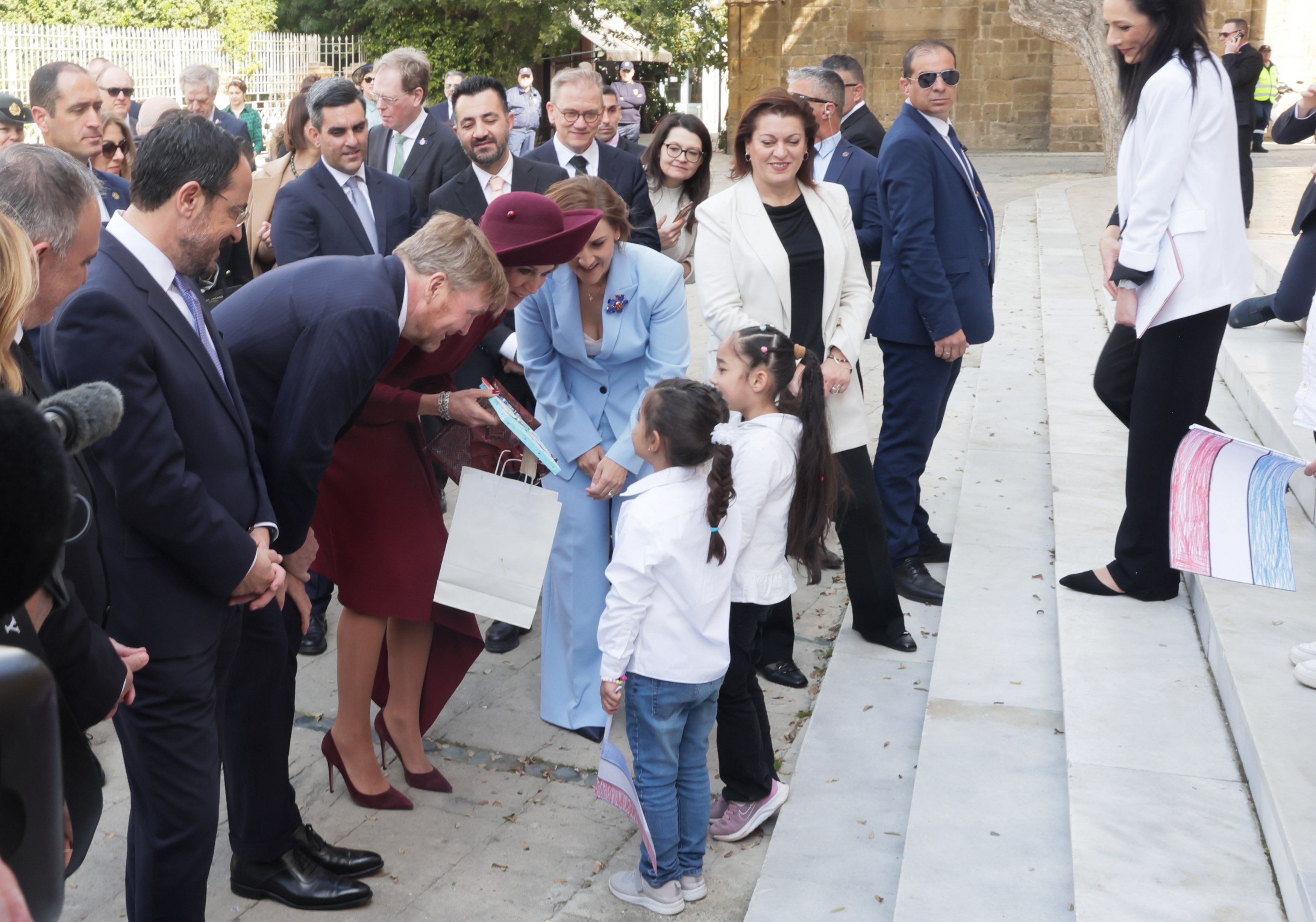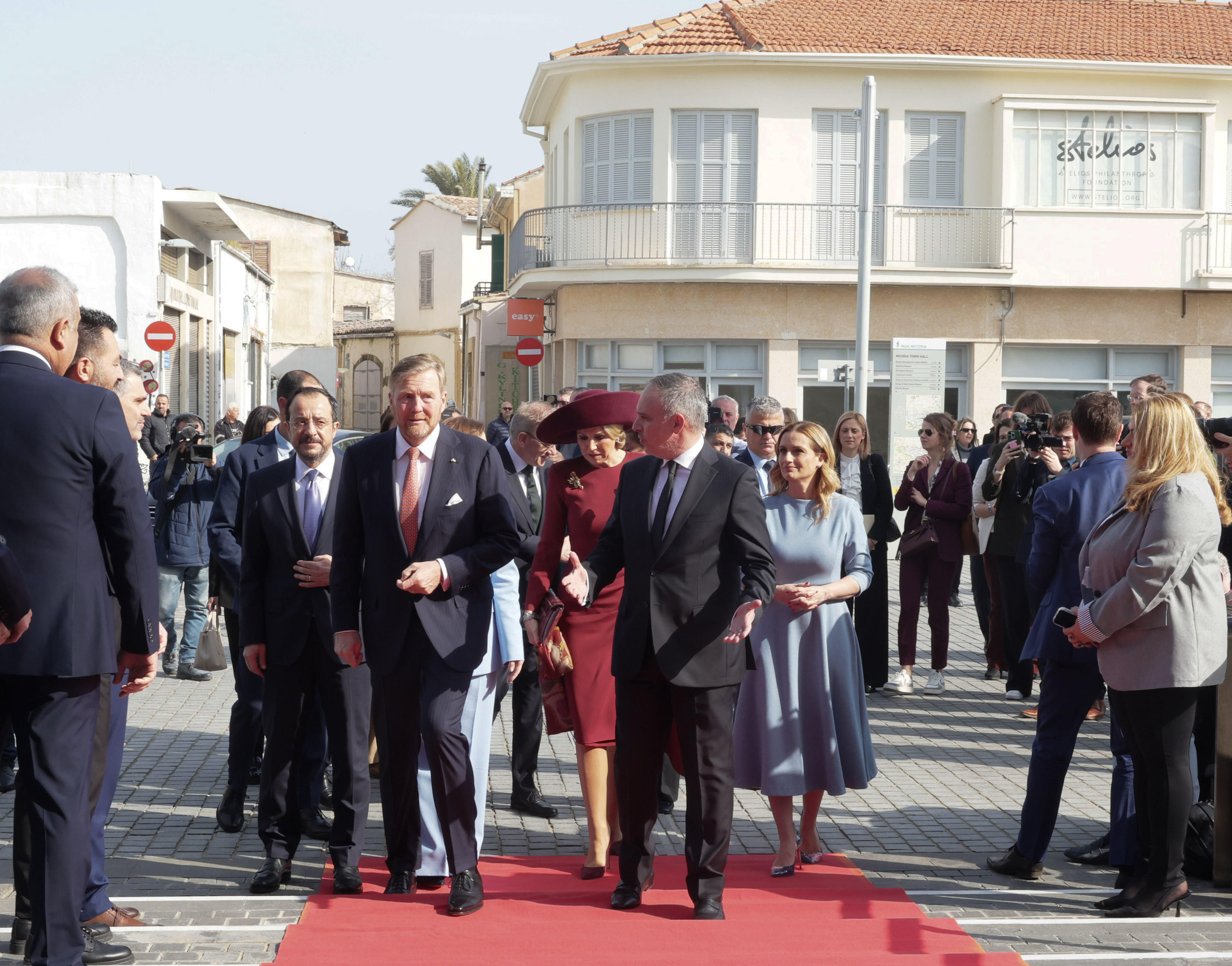President Nikos Christodoulides on Wednesday stressed the importance of taking foreign dignitaries to the buffer zone, as he took the Dutch King Willem-Alexander to the Green Line in Nicosia.
“For all visits by foreign dignitaries to Cyprus, a special visit is included in the programme, here, in Nicosia’s old town, to walk next to the buffer zone, the ceasefire line, because, and this is the message that the king conveyed to me, it is one thing to read about the situation and very much another to see it,” he said.
He added, “in fact, among the many things mentioned to me by the king was the fact that, taking into account that his family had lived in Germany, there was also this parallel with the Berlin wall, East and West Berlin.
“I consider it particularly important that we started this tradition, that all foreign leaders come here to see this situation.”
Also present for the tour of the buffer zone was Nicosia mayor Charalambos Prountzos, who said the royal couple had understood the “unacceptable situation” of Nicosia’s division.
“It is something that, only by seeing it, do people realise it. The royal couple understood the situation on the ground. Their surprise and sadness at what they saw was obvious, but they also saw our city’s historic nature, they saw the new, they saw the dynamics of a European capital,” he said.
“What we want them to take with them is the need to end this unacceptable state of affairs in our semi-occupied city.”
Asked about his plans regarding the enlarged meeting on the Cyprus problem which is set to begin in the Swiss city of Geneva on March 17, Christodoulides said the Greek Cypriot side is going into the meeting with a singular aim.
“Our goal is one: the resumption of talks from where they were interrupted in Crans Montana on the basis of the agreed framework. We are not discussing anything else,” he said.
Such a solution would see Cyprus unified as a bizonal, bicommunal federal state with political equality between the Turkish Cypriot and Greek Cypriot communities but has been for four years publicly rejected by Turkish Cypriot leader Ersin Tatar.

However, Christodoulides on Wednesday said he believes Turkey may be returning to the idea.
“Taking into account international developments, what we see in relation to Ukraine, in relation to our region, I also heard some statements from the Turkish President [Recep Tayyip Erdogan] in relation to relations between Europe and Turkey, I was also informed by the President of the European Council [Antonio Costa] about a telephone conversation he had with [Erdogan].
“If there is a response from Turkey within this framework, then, yes, we can expect positive developments,” he said.
He added that the Greek Cypriot side will “do everything possible” within the framework set out, saying, “we are not discussing any other forms of solutions or any moves or measures which aim to consolidate the occupation or build infrastructure towards another form of solution to the Cyprus problem”.
With this in mind, he said he will on Saturday travel to Athens for a meeting with Greek Prime Minister Kyriakos Mitsotakis in preparation for the Geneva meeting.
The aim of this meeting, he said, will be to see “some data and some elements”.
“Greece will be at the enlarged meeting, so [Mitsotakis] and I considered that it is important to have this meeting, which is why I am travelling to Athens on Saturday,” he said.
He also described Thursday’s European Council meeting as “crucial” and called for the European Union to become more independent in the fields of security, energy, and raw materials.
“Without wishing to enter into any competition, I believe that as the EU if we want to stand up, if we want to talk about the EU’s strategic autonomy, we must finally make decisions,” he said.
The government received an official invite to the Geneva meeting on Tuesday night, with the meeting set to begin with a meal on March 17, before continuing with bilateral contacts the following day, with a plenary session of the participants set to take place at the end of the two days at the Palais des Nations.
The enlarged meeting will see both Cyprus’ sides as well as representatives of the island’s three guarantor powers, Greece, Turkey, and the United Kingdom, and the UN, convene to discuss the Cyprus problem.







Click here to change your cookie preferences